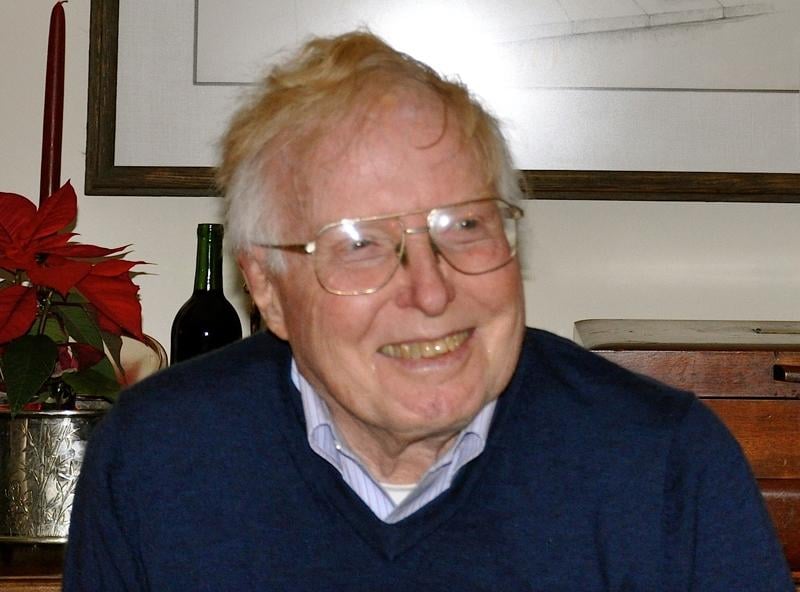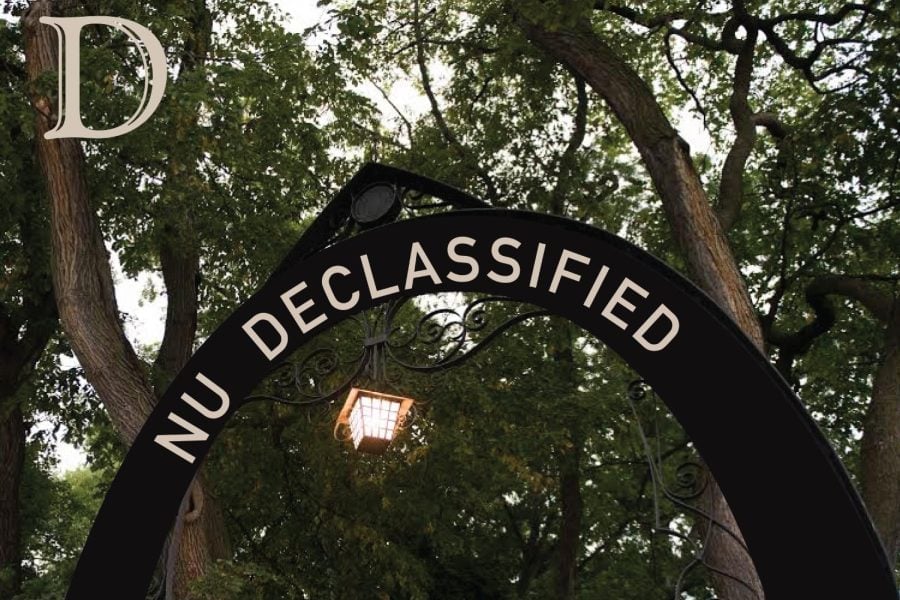Friends of longtime history Prof. Lacey Baldwin Smith said he was best known for two things during his nearly four decades at Northwestern: his vibrant lecture style and his legendary parties.
Smith’s friend and colleague, professor emeritus Robert Lerner, said he would always remember Smith, who passed away Sept. 8 at the age of 90, as an outgoing and generous host who was nothing but welcoming to his many guests. Lerner said he first met Lacey while interviewing for his job around Christmas in 1966.
“The interview procedure included a gathering of all the members of the history department at Lacey’s house,” Lerner said. “In this case it wasn’t a party for me because I was being interviewed. I was on the line for a job, but he and his wife were extremely gracious and open and gave me the best first impression of Northwestern that one could possibly have.”
Lerner said Smith, who first came to NU in 1955 as an associate professor in the history department, was always willing to host department gatherings at his house, even before he was named department chairman — a position he held twice.
“He and his wife loved to entertain,” Lerner said. “They were extraordinarily generous in lending their house for departmental affairs, so for a number of years when we recruited graduate students, the Smiths hosted, and people looked forward to it even though it was, in a way, departmental business.”
But Smith contributed more to the history department than just a place to throw parties.
Professor emeritus William Heyck, another friend and colleague, said Smith was a great mentor to younger members of the department and a decisive leader who helped make important departmental decisions.
“He was a wonderful statesman who we looked to for judgment and leadership,” Heyck said.
Heyck said he remembers one particular instance when the history department was debating a contentious issue and Smith insisted on attending the meeting, despite suffering from severe back pain that prevented him from standing or sitting up.
“We met in Harris 108, but he could not sit in a chair or stand, so he lay down on the floor alongside the wall. Well, we debated and we debated and we debated and at one point towards the end of the debate we saw a hand come up from the floor, and it was Lacey Smith,” Heyck said. “So the chair of the department called on him to speak, and we heard this kind of scuffling sound, and Lacey tried to get up but he couldn’t. … In any case he did speak very effectively lying down on the floor.”
Smith’s ability as a great speaker also helped him to become one of the most popular NU professors in his time. Lerner and Hecyk both said Smith’s introductory English history course was a “must-take” among students while Smith served as a professor.
“He was a brilliant and dramatic lecturer,” Hecyk said. “Juniors and seniors would take this course as something you shouldn’t leave Northwestern without having taken.”
Smith’s popularity as a lecturer led to the establishment of the Lacey Baldwin Smith Prize for Teaching Excellence, an award given to the department seminar and section leaders with the highest Course and Teacher Evaluation Council scores.
Smith himself received much recognition throughout his career for his work as a professor and a historian. He wrote several books during his lifetime, including a popular biography of Henry VIII, “Henry VIII: The Mask of Royalty,” which Lerner said received stellar reviews.
“He had the brilliant idea of taking the biography from the point of Henry as an old man, and his argument was that the personality traits of an individual become particularly pronounced when he gets to be old, and so he studied the old man and went back to see how that was manifested in the development of his early life,” Lerner said. “Nobody had ever written a book like that before.”
Smith continued writing even in his 80s, after retiring from NU in 1993. He remained affiliated with the university as a professor emeritus and continued to teach for many years in NU’s alumni program.
“Lacey was a great teacher, great scholar and very, very influential university statesman,” Hecyk said. “He was a fine man.”
Email: [email protected]
Twitter: @amykwhyte













